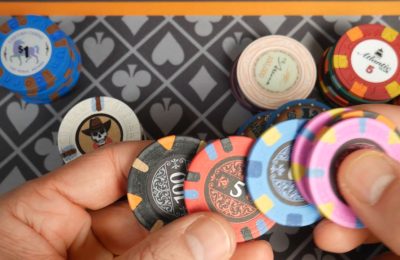Let’s be honest for a second. Trusting an online casino with your money can feel… well, a little bit like a leap of faith. You click “spin,” and you just have to hope that the digital roulette wheel isn’t rigged against you. For years, that was the deal. You played on the house’s terms, with no real way to verify the game’s integrity.
But that’s all changing. And it’s changing because of blockchain. This isn’t just a tech buzzword here; it’s the foundation for a whole new level of honesty in online gaming called provably fair gambling. It’s a system that doesn’t ask for your trust—it hands you the keys to verify it yourself.
What Does “Provably Fair” Actually Mean? Breaking It Down
Think of it like a sealed deck of cards. In a traditional online game, the casino shuffles the deck behind a curtain. You never see it. You just have to believe it was shuffled fairly.
Provably fair technology tears that curtain down. It uses cryptography—specifically, hashing algorithms—to create a system where every single game outcome can be independently verified by you, the player, after the fact. The casino can’t change the result because the proof is locked in before the game even begins. It’s like a tamper-proof receipt for every bet you place.
The Nuts and Bolts: How Blockchain Makes It All Work
Okay, let’s get into the mechanics. Don’t worry, we’ll keep the jargon to a minimum. The magic of provably fair systems hinges on a three-step process that involves a “seed.” A seed is basically a random starting point that determines the game’s outcome.
The Three-Part Dance: Server Seed, Client Seed, and Nonce
Here’s the simplified version of how a typical round works:
- Server Seed (The Casino’s Part): Before any games are played, the casino generates a random seed and then hashes it (scrambles it into a long string of characters). This hash is published publicly. It’s like the casino sealing their random number in an envelope and showing you the sealed envelope.
- Client Seed (Your Part): You provide your own random seed. Sometimes this is generated for you, but often you can create one to add your own layer of randomness. This ensures the casino can’t just work off their own pre-determined number.
- The Nonce: This is just a counter that increments with each bet you make. It ensures every round is unique, even if the seeds stay the same for a session.
When you place a bet, these three elements—the server seed, your client seed, and the nonce—are combined. This combination generates the game’s outcome. The critical part? That original, un-hashed server seed is revealed after the round. You can then take it, hash it yourself using free online tools, and confirm that it matches the original hash the casino showed you before the game started.
If it matches, you know the game was fair. The casino couldn’t have changed the seed after seeing your bet because the hash would have changed. It’s a perfect, self-contained system of checks and balances.
Beyond the Algorithm: The Role of Public Ledgers
This is where blockchain elevates the concept from great to revolutionary. Many provably fair platforms don’t just run this process on their own servers; they anchor the data directly onto a blockchain—usually Bitcoin or Ethereum.
Imagine the blockchain as a public, immutable bulletin board that nobody can ever take down or edit. By writing the hashes of each game or batch of games onto this bulletin board, the casino creates a permanent, timestamped, and unchangeable record of its fairness. This completely eliminates any possibility of the platform altering historical data or manipulating the system in the future. The transparency isn’t just for your current session; it’s etched in digital stone forever.
Why This is a Game-Changer for Players
This shift from “trust us” to “verify yourself” is massive. It addresses the core anxieties every online gambler has had.
- Unprecedented Trust: You are no longer a passive participant. You become an active auditor. This builds a level of confidence that traditional online casinos can only dream of offering.
- Empowerment: It hands the power back to the player. You have the tools to prove, for yourself, that the game is on the level. That’s incredibly empowering.
- True Transparency: There are no black boxes. The entire process is out in the open, waiting for anyone to scrutinize. This forces operators to be honest, creating a healthier ecosystem for everyone.
The Flip Side: Challenges and What to Keep in Mind
Now, it’s not all perfect. The technology is brilliant, but it’s still young. The biggest hurdle is user experience. Let’s be real, the average person isn’t a cryptographer. Manually checking hashes can be clunky. The best platforms are working to integrate seamless, one-click verification tools directly into their interfaces.
Another point? Provably fair only proves that the random number generation was fair. It doesn’t guarantee the platform will pay out your winnings or that it’s a reputable business. You still need to do your homework on the operator’s licensing, reputation, and security practices. The tech verifies the game’s math, not the company’s ethics.
The Future is Verifiable
Blockchain transparency in provably fair gambling is more than a feature; it’s a philosophical shift. It moves the industry from a place of assumed trust to one of verifiable truth. It’s a quiet revolution happening hand-in-hand with the rise of cryptocurrency casinos.
While it might feel niche today, this model sets a new standard—a benchmark for what players should demand. Why just hope a game is fair when you can actually know it? That’s the powerful, simple question provably fair technology answers. And honestly, it’s a question that will likely echo through the entire online gaming industry for years to come, pushing everyone toward a more open and honest future.















